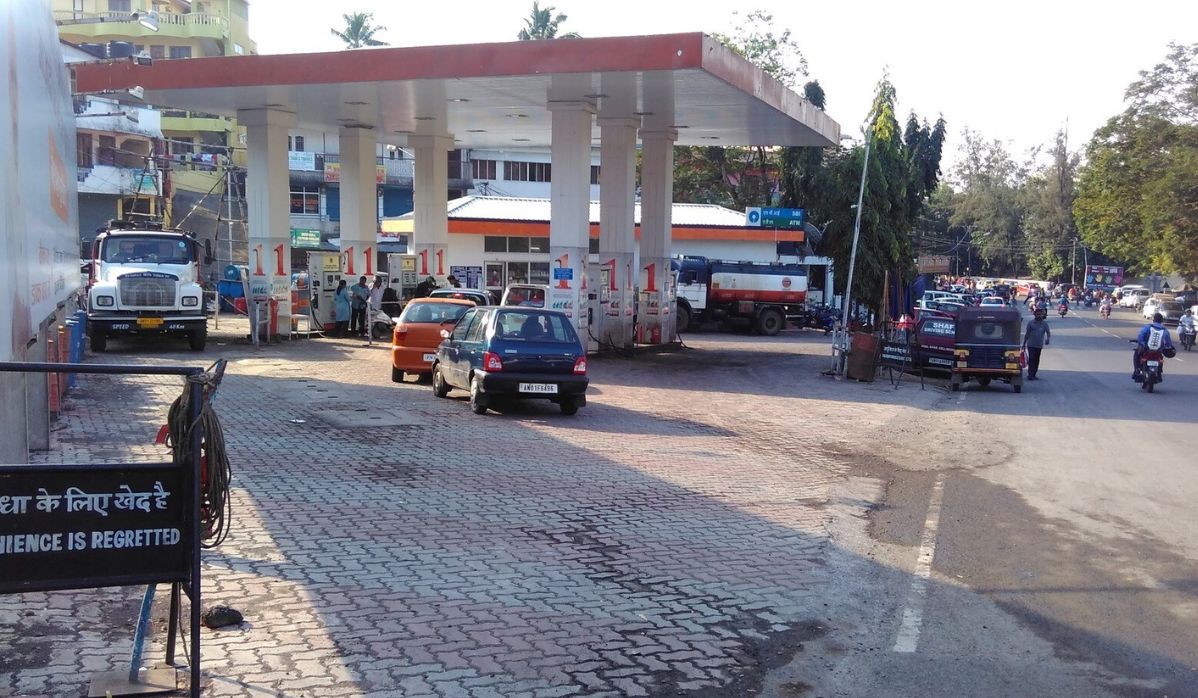Tarun Karthick
Sri Vijaya Puram, 03 June 2025
Located more than 1,200 kilometres away from the Indian mainland and nestled in the vast expanse of the Bay of Bengal, the Union Territory of Andaman and Nicobar Islands has emerged as an unlikely holder of a unique distinction—it offers the lowest petrol and diesel prices in the entire country. While residents of the islands routinely face higher prices on almost every essential commodity, from basic food items to fruits and household goods, they benefit from significantly lower fuel prices compared to even the most accessible cities on the mainland.
As per the IndianOil ONE mobile application, the price of petrol in the Andaman and Nicobar Islands on 3rd June 2025 stands at ₹82.46 per litre, while diesel is priced at ₹78.05 per litre. These rates are notably lower than those in nearby mainland cities such as Chennai and Visakhapatnam. In Chennai, the capital of Tamil Nadu and one of the closest major cities to the islands, petrol costs ₹100.80 per litre and diesel ₹92.39 per litre on the same day. In Visakhapatnam, located in the state of Andhra Pradesh, petrol is retailing at ₹108.35 per litre and diesel at ₹96.22 per litre—prices that sharply contrast with those in the distant island territory.
This surprising affordability in fuel prices is primarily due to the unique taxation policy followed by the Union Territory administration. In India, both the central and state or UT governments levy taxes on petrol and diesel. While the central excise duty remains uniform across the country, the Value Added Tax (VAT) imposed by each state or UT varies widely, as petrol and diesel are currently excluded from the ambit of the Goods and Services Tax (GST). This exclusion grants individual governments the autonomy to fix VAT rates on these fuels according to their own fiscal priorities.
The Andaman and Nicobar Administration levies just a 1% VAT on both petrol and diesel, the lowest rate in the country. This marginal tax, results in fuel prices that are unmatched in their affordability anywhere else in India. Even Lakshadweep, another Union Territory and island group with logistical challenges similar to the Andaman and Nicobar Islands, imposes a 10% VAT on fuel. As a result, petrol in Lakshadweep on 3rd of June 2025, costs ₹100.75 per litre and diesel ₹95.71 per litre, according to various online sources. These figures underscore the magnitude of the price difference enjoyed by consumers in the Andaman and Nicobar Islands.
Interestingly, this advantage goes largely unnoticed by the residents themselves. While they are acutely aware of the burden imposed by high prices on most goods, very few are conscious of the fact that they are paying the lowest price for petrol and diesel in the country. In an environment where relief from high living costs is rare, the affordability of fuel brings a small but meaningful reprieve.
However, despite the low prices, the region continues to face its share of logistical and infrastructural challenges, particularly in the more remote Nicobar District. Fuel supply disruptions are not uncommon in some of the southernmost islands, often caused by difficulties in replenishing fuel stocks due to weather conditions, long transport distances, and limited storage capacity. These issues, while not impacting price, do affect availability from time to time and are a reminder of the complex realities of life in such a geographically isolated region.
Even so, the pricing policy on fuel stands as a noteworthy achievement for the Union Territory administration. In a time when fuel prices across India are a frequent point of concern for consumers and a contentious subject in political discourse, the Andaman and Nicobar Islands represent a rare example where a public utility has been kept genuinely affordable. While the people of the islands face numerous disadvantages owing to their remote location, at least at the petrol pump, they enjoy a rare and significant benefit—access to the cheapest petrol and diesel in the entire country.


It was good information. As SENIOR JOURNALIST [ now retired ] never came across information in any NATIONAL DAILIES which I go through regularly.
Dhanywad NAMASKAR